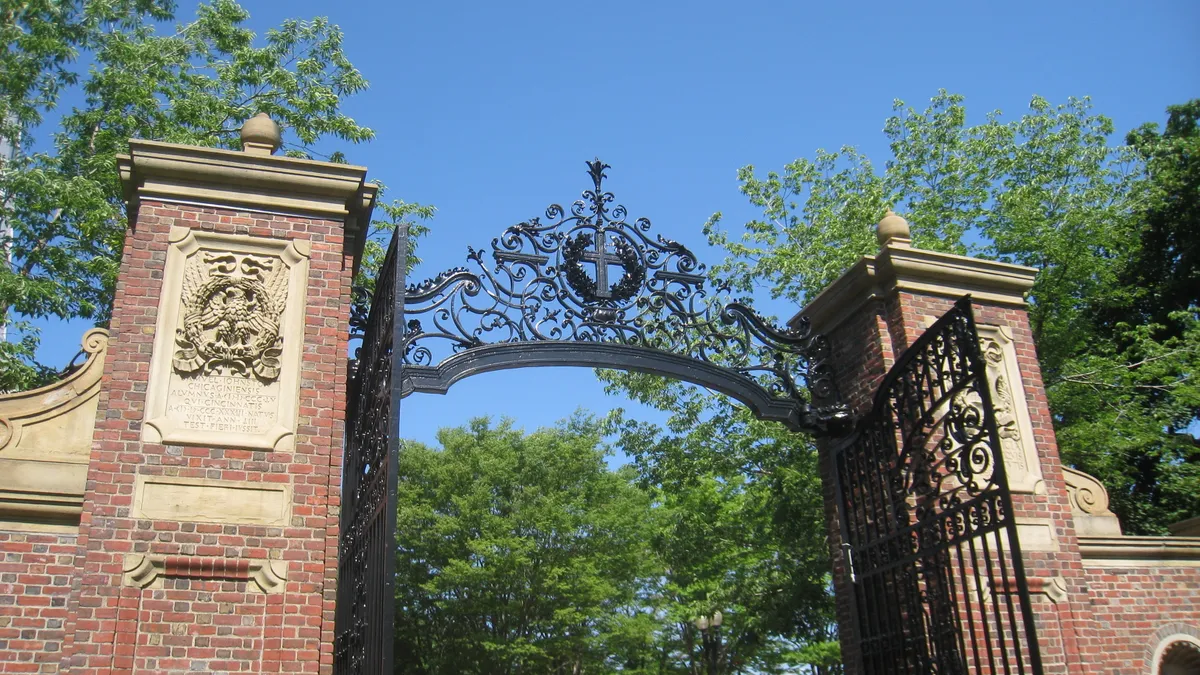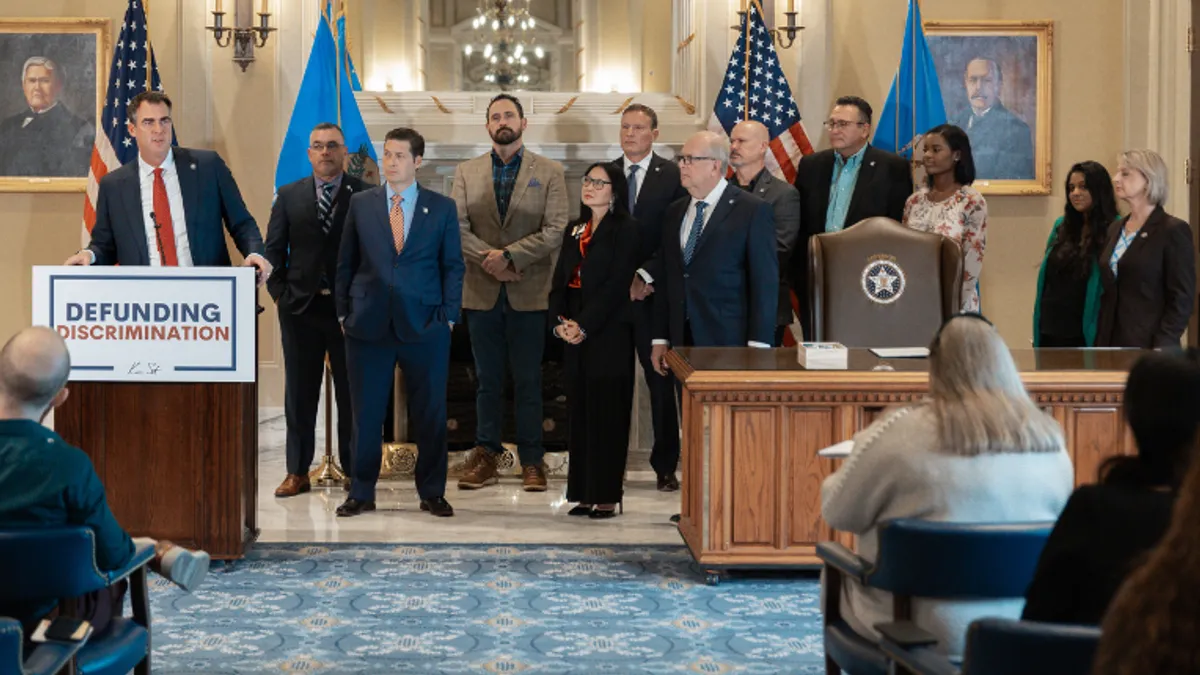Dive Brief:
- U.S. News & World Report made several changes to its annual college rankings that dropped Monday. Those include ranking schools based on their contributions to underrepresented students' social mobility and rewarding institutions for graduating first-generation students.
- The "Top Performers on Social Mobility" lists evaluate schools based on how many low-income students they enroll and graduate. Three University of California System campuses — Riverside, Santa Cruz and Irvine — topped that list for national universities.
- The publication also debuted rankings of university programs, such as study abroad, co-ops/internships and first-year experiences. The changes come amid mounting criticism that such annual lists merely reward the most selective schools and further inequities in higher education.
Dive Insight:
U.S. News responded to the critics of its annual rankings last year by dropping acceptance rates and adding social mobility indicators to its methodology for evaluating schools. This year, it took another step by launching the new rankings.
However, the rankings are still likely to catch some flak. That's because the usual suspects — Princeton, Harvard and Columbia universities — nabbed the coveted top spots in the national universities ranking. The remainder of the top of the list is similar from last year.
Some institutions were able to jump several spots. Those include Florida State University and the University of Pittsburgh, which are now tied with a handful of other universities for the No. 57 spot on the national list after making strides in factors including graduation rates.
However, some lawmakers and higher ed leaders have previously said the rankings don't do enough to reward social mobility, which accounts for 5% of an institution's score in the main Best Colleges lists. Moreover, the primary lists don't reward institutions for the share of underrepresented students an institution enrolls.
"It's just window dressing," Dillard University President Walter Kimbrough told Education Dive of the recent change to include social mobility in the traditional scores. "Particularly for an African American student, (a school) can be ranked really high, but they might have yearly racial incidents on campus."
Kimbrough said his own students and their families are more concerned with aid packages and having a good experience during college than they are with their institution's spot on a list. "I can't recall having a meaningful conversation with students and parents about a school that's higher ranked," he said. "That's not the conversation."
Several recent scandals have drawn criticism of the rankings. For one, schools have periodically been kicked off them for providing incorrect information. And the recent college admissions scandal, in which wealthy parents paid millions to get their kids into prestigious schools, cast doubt on the admissions practices of several institutions that regularly appear at or near the top of such lists.
But sources interviewed for this story say college applicants still place stock in them.
"Most of it is still based on measures of resources and prestige, which frankly is what many students and their families want — they want to go to the most selective place they can get into," said Robert Kelchen, a higher education professor at Seton Hall University, in an interview with Education Dive. "But from a broader public policy perspective, that leaves a lot of students behind."
Kelchen is also the data manager for Washington Monthly's alternative college ranking, which evaluates schools based on factors such as social mobility and how much they encourage students to vote. He said colleges likely will continue to advertise when they rise a spot or two on such lists — and stay silent when they don't — because the rankings may have an effect on applications.
Indeed, a 2014 study found making it into the top 25 is associated with a 6% to 10% increase in applications, even if a college's rank itself doesn't predict how many prospective students apply.
"You can guarantee that colleges have already written up their press releases if they move up in the rankings," Kelchen said.









